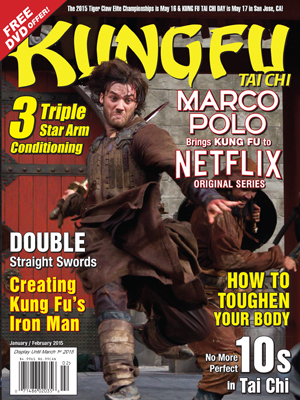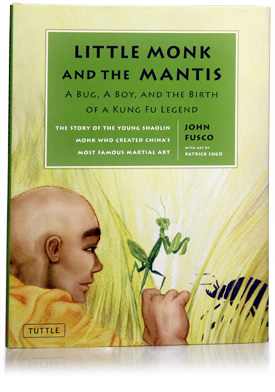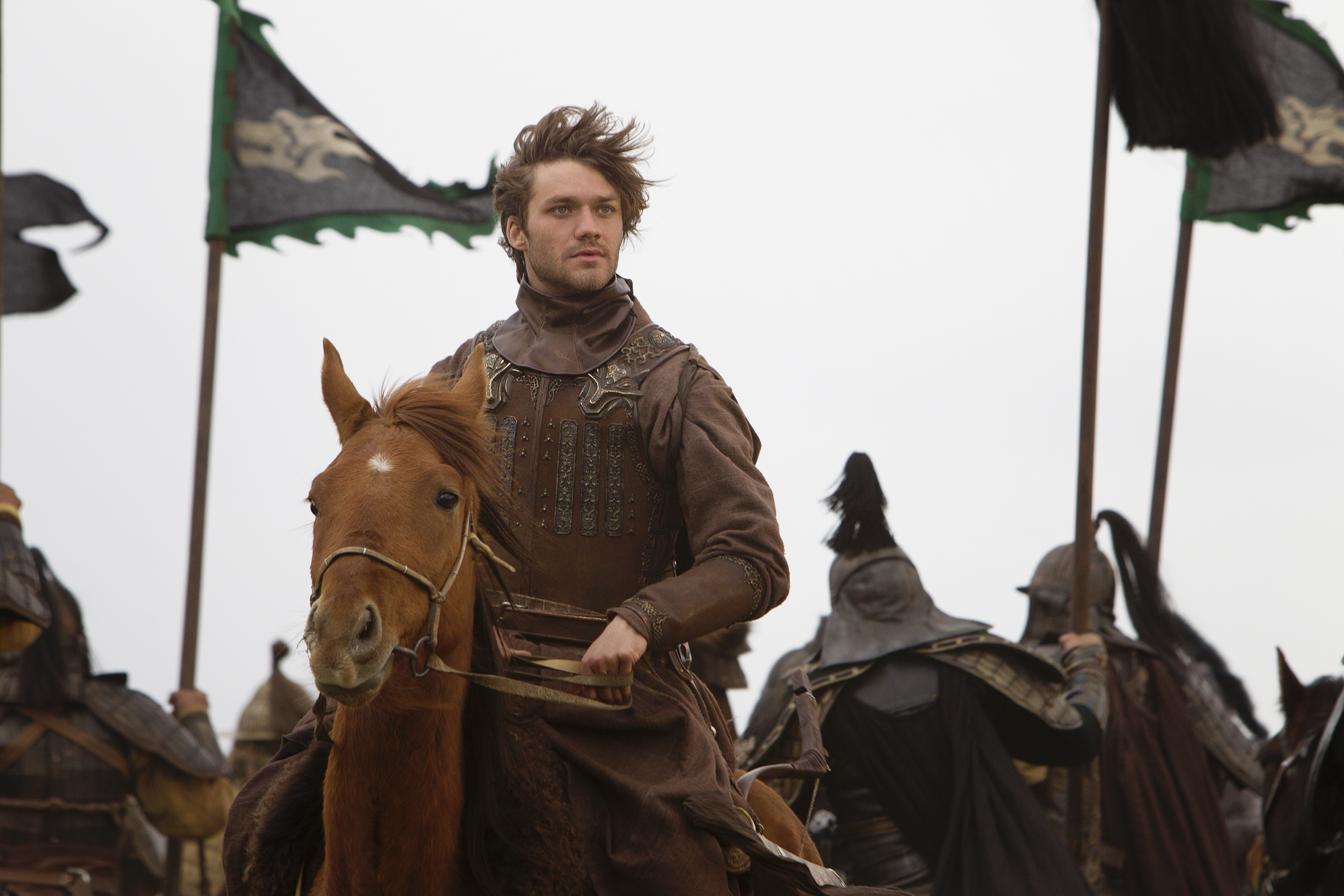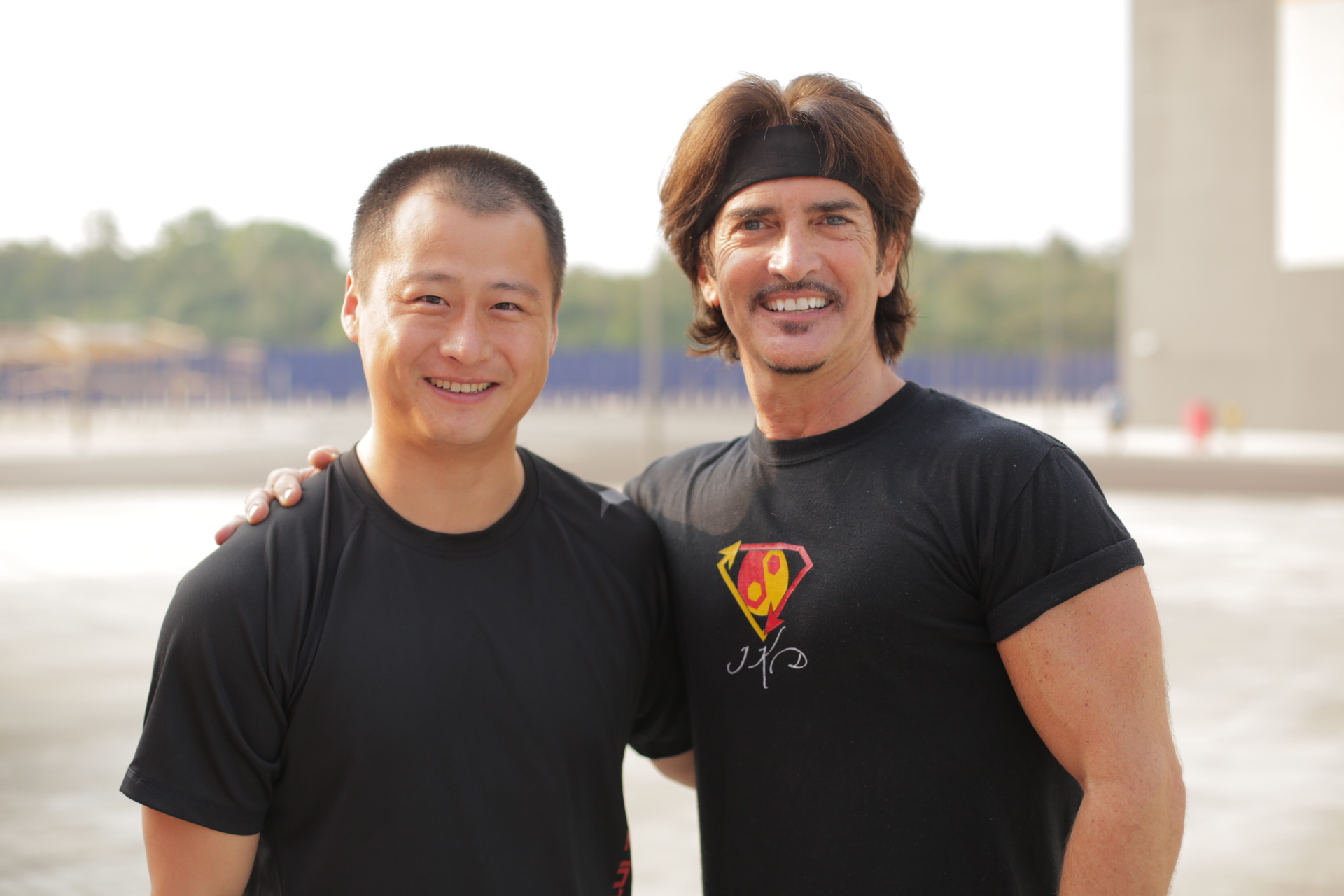By Lori Ann White
Buy this issue now , or download it from Zinio
 On December 12, Netflix will release all ten episodes of Marco Polo, an epic retelling of the 13th century Venetian’s early days in the court of Kublai Khan. According to press from producers the Weinstein Company, the series is filmed on a grand scale, rivaling Game of Thrones (2011–present) for visuals and containing something for everyone: sex, romance, court intrigue, beautiful locations, rousing battles and martial arts.
On December 12, Netflix will release all ten episodes of Marco Polo, an epic retelling of the 13th century Venetian’s early days in the court of Kublai Khan. According to press from producers the Weinstein Company, the series is filmed on a grand scale, rivaling Game of Thrones (2011–present) for visuals and containing something for everyone: sex, romance, court intrigue, beautiful locations, rousing battles and martial arts.
For John Fusco, the award-winning screenwriter of The Forbidden Kingdom (2008), who created, executive-produced, and wrote several episodes of Marco Polo, the series is a statement of personal belief. Fusco is a Northern Mantis stylist with a life-long interest in the Chinese martial arts and the philosophies at their heart, and he has doubled down on several previous works in which a lone adventurer, dropped into an unfamiliar situation, gains the respect of those around him by sticking to his martial values: courage, integrity, honesty. Whether the character trains under a master (Jason Tripitikas in The Forbidden Kingdom) or in the School of Hard Knocks (Frank Hopkins in Hidalgo (2004)), Fusco returns again and again to the idea that values revered in the martial arts are recognized as worthy of respect the world over.
Marco Polo is a true-life example, says Fusco. “Most people associate ‘Marco Polo’ with a game you play in a swimming pool,” he said. Even among those who know of the Italian adventurer who went to China, “None of them knows the real story,” says Fusco, “and we get to reveal it.”
Marco Polo the historical character has often been discounted as a teller of tall tales because stories of his travels along the Silk Road and inside China seemed so far-fetched, says Fusco, who has studied Polo extensively. “He was a storyteller,” Fusco says. “He enchanted Kublai Khan with his tales of Venice.” When Polo’s father and uncle, who had taken the young man with them on their Silk Road trek, continued their journey, “his father basically gave Marco to the Khan, who groomed him as a Chinese scholar and gentleman, and this training included Kung Fu.”
Fusco’s Martial Background
Few Hollywood insiders have as extensive a background in the martial arts as Fusco. It began in the 1970s with instruction in Tang Soo Do from an old Korean War buddy of Fusco’s father who was a senior instructor with Soke Romaine Staples of the Academy of Korean Martial Arts. Fusco received an excellent grounding in the basics, but, as with many of his generation, he was captivated by what he saw on the series Kung Fu (1972-1975) and wanted to study Kung Fu instead. He read everything he could about China, but finding a sifu had to wait until his screenwriting career was well underway.
Fusco moved to Vermont, and it was there, of all places, where he met his sifu, Arthur Makaris, with whom he still studies Northern Mantis and Bagua when he’s at home.
“I value and love classical Kung Fu. Forms are a moving database – a library you can carry with you. Everything is contained in those forms.” Fusco, who travels extensively, consults his library often.
He also seeks out masters to train with: Augustine Fong of Tucson, Arizona, and Lawrence Ramirez of the Pacific Island Wing Chun Association in Kona, Hawaii, for Wing Chun; Yi Shenguo of Zhejiang Province for Chinese Boxing and Taiji; and Jeet Kune Do techniques with Tim Tackett, Jeremy Lynch (both primarily in Redlands, California), the late Ted Wong (“Bruce Lee's best friend and last formal student”), and Burton Richardson in Oahu.
“Instead of letting travel derail my studies, I use it to enhance and develop my skills,” Fusco says. “But Arthur Makaris is my sifu.”
Fusco’s devotion to Chinese martial arts is obvious, yet before Marco Polo he made his name as a successful screenwriter and producer of Western-tinged movies like Hidalgo and Thunderheart (1992). The Forbidden Kingdom was his only Chinese- or martial arts-related script. What kept him from mining the wealth of Chinese history and culture for his stories for so long?
According to Fusco, he has actually been tapping into a deeper vein by exploring the universal Warrior archetype. The Lone Gunman and the Lone Swordsman are closely related. “Everyone from John Ford to Akira Kurosawa to Sergio Leone has studied the character,” he says.
Fusco’s second point is less film school speak and more respectful martial artist. “Another reason I never explored it in a more straight-forward fashion is that martial arts is sacred to me and I didn’t want to compromise.” He quickly clarified: “Many of my Native American projects were also sacred to me in every sense of the word...[my] concern was the risk in translating martial arts to the big screen and having it misrepresented as what a former teacher of mine used to call ‘Hong Kong Fooey.’ In other words, bullshit.”

Martial Storytelling
What finally convinced Fusco to use his storytelling talents to share his martial knowledge with a broader audience was, in a sense, his own disciple – his son Giovanni. “When my son began studying Chinese martial arts at a young age, I found myself using my storytelling to help teach him,” Fusco says. In 2009, Fusco shared with Kung Fu Tai Chi the charming tale of how a bedtime story he spun for his young son turned into the script for The Forbidden Kingdom (“Forbidden Fist: The Making of The Forbidden Kingdom” by John Fusco, MAY+JUNE 2009).
 In addition to The Forbidden Kingdom, Fusco published the children’s book Little Monk and the Mantis (2012) based on the stories he told his son and illustrated by Kung Fu Tai Chi’s senior graphic artist, Patrick Lugo. The son’s influence on the father did not stop there. Turns out Giovanni had a major influence on the making of Marco Polo as well.
In addition to The Forbidden Kingdom, Fusco published the children’s book Little Monk and the Mantis (2012) based on the stories he told his son and illustrated by Kung Fu Tai Chi’s senior graphic artist, Patrick Lugo. The son’s influence on the father did not stop there. Turns out Giovanni had a major influence on the making of Marco Polo as well.
“As an unlikely Italian-American kid reading Chinese history, I’d always had an interest in Marco Polo,” Fusco says. “I’ve always been fascinated by the traveler, the outsider, and I’ve always had an affinity for other cultures.”
Like father, like son. Giovanni became a geography whiz with a particular fascination for Mongolia. He begged his father to take a trek on horseback across the steppes, and the response was always, “Someday.”
Fast forward to 2007, when Giovanni’s bedtime story was being filmed at a location a mere 55-minute flight from Ulan Bator. “My son called and said, ‘Dad, it’s the perfect opportunity,’” and Fusco had to agree. He took a leave of absence from the set and he and his son embarked on their trek.
Watching Giovanni talk history with their guide set off a spark, Fusco says. “I just had this feeling – damn, it’s time to do Marco Polo,” he says.
The Marco Polo Project
Three months after The Forbidden Kingdom premiered, Harvey Weinstein of The Weinstein Company called.
Fusco had first met Weinstein when the famous producer of numerous Oscar-winning films approached him to write additional material for Nomad, a film about a warrior who is a descendent of Genghis Khan. “He was looking for what he called ‘soul’ that he had identified in my screenplay work,” Fusco says. “Looking back now, that was likely the foundation of our partnership on Marco Polo.”
Fusco’s scenes didn’t make the movie due to budget and time constraints, but Weinstein liked his work and the two men continued to collaborate on projects, including the sequel to Crouching Tiger, Hidden Dragon, for which Fusco wrote the script. “Not just martial arts; I have adapted the bestseller The Alchemist for him,” Fusco says, but, “Harvey and I have a mutual love of Chinese cinema.” Weinstein asked Fusco a curious question: did he know anything about Marco Polo? One thing led to another, and, says Fusco, “That was the start of development.”
The series was originally intended for Starz, but budget problems caused that deal to fall through. Weinstein took the package to Netflix, which Fusco heartily approved; “they’re bold,” he says. The company proved that by announcing it would release Crouching Tiger, Hidden Dragon: The Green Legend simultaneously online and in IMAX theaters on August 28, 2015. The announcement rocked the conventional distribution system for theatrical films and has been labelled a game-changer by industry observers.
Marco Polo is Fusco’s first foray into television, and as the show’s creator and executive producer, his responsibilities extend far beyond writing episodes. He’s had a hand in all facets of the production, from selecting locations (Kazakhstan, Venice, and Malaysia) to sets and design, to choosing cast and crew. Many of the actors featured in Marco Polo have little name recognition, at least in the west, but Fusco says the people assembled behind the camera are a “dream team.”
“We have Lily Kilvert from The Last Samurai (2003) for production design,” he says. “Alik Sakarov, who has directed episodes of Game of Thrones, is one of our directors. We have some extremely talented writers.”
He’s particularly proud of his fight choreographer and stunt team. “I hired a young choreographer named Brett Chan to be head fight choreographer,” he said. “I was spoiled by working with Yuen Woo-Ping [on The Forbidden Kingdom], but a part of the show’s purpose in pushing the envelope is giving the younger people an opportunity to shine.”
But how much Kung Fu would be realistic in a series that centers on a European living almost 800 years ago?

Martial Arts in Marco Polo
“Marco Polo is a martial arts spectacle, but the martial arts is not a gratuitous addition to the show.” Far from it, says Fusco; part of the purpose of Marco Polo is to push the envelope for martial arts on television.
He is adamant that this will include Polo himself. “The evidence is there” that Polo received martial arts instruction during his 17 years as a member of the Khan’s court. Kublai put him to work ostensibly as an emissary, but that was a cover, Fusco says. Polo was the Khan’s special agent, and special agents need to know how to defend themselves. Fusco says he took full advantage of the opportunity, envisioning the series more as a wuxia novel adapted to television than as standard retelling of the Venetian adventurer’s travels.
Some of the styles included are Mongolian wrestling, which Fusco calls the “unsung martial art of Mongolia,” several animal styles, and Xingyi and Bagua, taught to Polo by the fictional character Hundred Eyes, a blind Daoist monk played by British Wushu champion Tom Wu (who coincidentally portrayed the character “Genghis Carnage” in Kick-Ass 2 (2013)).
Polo is portrayed by young Italian actor Lorenzo Richelmy in his first English-language role. Fusco says Richelmy was up for the challenge of what is – when mapped to a traditional Kung Fu movie – the role of the oft-abused disciple. “He has two stunt doubles, but Lorenzo did most of his own stuff.”
In addition to believable Kung Fu from a 13th century European, Fusco says the series “probably has more strong female characters than any other series.” Considering that Marco Polo is a Netflix project and the internet media provider is also famous for Orange is the New Black (2013–present), set in a women’s prison, those are strong words.
“Marco Polo has at least six very strong female characters,” Fusco says. “Mongolian women were and are very strong – opinion makers and advisors. Kublai Khan’s principle wife Chabi [Joan Chen] was the Khan’s greatest council. He was madly in love with her.”
The women weren’t just strong in spirit, and Fusco says the series shows that as well. “Claudia Kim portrays Mongolian warrior-princess Khutulu, who was Kublai Khan’s niece. She was undefeated in Mongolian wrestling. Mongolian princess Kokachin [Zhu Zhu] was an archer,” he said.
The Song Dynasty women in the series are no slouches either. Both Mei Lin [Olivia Cheng], the sister of the Song emperor Jia Sidao [Chin Han] and his favorite concubine Jing Fei [Oo Shu An] are shown as skilled Taiji practitioners, Fusco said, while Mei Lin is highly skilled in classical Kung Fu techniques.
The attention lavished on the martial arts of Marco Polo may help it fend off some serious competition from several other shows. A slate of Marvel heroes, including Daredevil, Iron Fist, and Luke Cage, all have their own series, while Arrow (2012–present) centers on DC Comic’s the Green Arrow. Outside the superhero genre are Kingdom, an MMA drama starring a buffed-up Nick Jonas of the singing Jonas Brothers, and Badlands, a take on the classic tale of the Monkey King, Journey to the West.
Fusco credits the entire fight team with pulling together all the martial arts for the series. "I have worked with a lot of stunt men and women and many different action teams, but Brett Chan's unit was the tightest, most committed, and most dedicated stunt team I've ever worked with," Fusco said.
One of the perks for Fusco of assembling such a skilled crew was the chance to train with them before filming began. Workouts with the stunt crew were grueling. “We’d do five-on-one aggression drills where I’d start on the ground with five of them on top of me and I’d have to fight my way back up. Brett loved to have them go hard on me.”
Getting beaten up by Chan’s stunt crew has enabled Fusco to experience how close the team was – "like a family," he says – and he was there when the family experienced a devastating loss. Ju Kun, who had doubled for Jet Li in Fearless (2006) and The Expendables (2010), was lost on Malaysian Airlines flight MH370, which disappeared somewhere over the Indian Ocean.
“I trained with him March 7 and he boarded the plane March 8,” Fusco says. “He was a martial arts treasure. He was able to make his mark on the series by designing the Scholar Sword style for the Khan’s son Jingim [Remy Hii].
"Losing our assistant fight choreographer Ju Kun tested the mettle of that team. But in their effort to regroup and step up for the show as Ju Kun would have wanted, they brought the entire Marco Polo crew together the way families come together at times of tragedy," says Fusco. "The spirit of this remarkable stunt team, under Brett Chan, permeates and informs the heart and soul of the show itself."

Jun Kun, who was lost on flight MM370 with John Fusco
Beyond Marco Polo
With Marco Polo in production, “It’s been a wild, crazy year,” he admits. But somehow he’s found time to work on other upcoming projects. In addition to The Alchemist and the Crouching Tiger, Hidden Dragon sequel, Fusco adapted the Elvis Presley bio, Last Train to Memphis (produced by Mick Jagger) and The Shack, which he calls “a spiritual odyssey.”
Fusco also recently published his second novel, Dog Beach, about a down-on-his-luck Hong Kong stunt man working as an enforcer for shady Hollywood types. When legendary but often-injured stuntman Louie Mo is instructed to lean on a young director who actually recognizes him and wants him to star in a movie, Louie finds the opportunity of a lifetime dangling in front of him like a rope ladder over a ten-story drop. But as he outruns mobsters, irate ex-football players, and the Chinese mafia, no one pulls any punches and the bullets are real.
However, working on Marco Polo has been a special experience for Fusco. “There’s nothing like being a show creator,” he says. “I’m so grateful and excited for this opportunity.” As a writer, Fusco is thrilled at the level of storytelling possible in television shows today. “It’s like writing the new Great American Novel,” he says. “We’re definitely in a second Golden Age of television.”
As a martial artist, he’s ready to become a sifu himself in a way, and pass on the historical knowledge in the way he knows best. “I’ve reached a point in my career where I would love to have a part of the audience connect with this story in the same way I connected with the series Kung Fu,” Fusco says. “I hope someone sees this and thinks, ‘I want to learn more about China and I want to learn martial arts.’”
As a father, Fusco thinks about how his father first sparked his interest in martial arts, and how he then inspired his own son – who returned the gift by continuing to share his excitement with his father. “Amazing to think that having a son would turn my creative pursuits toward a direction that has given my career a second wind – and one that has reconnected me with my own greatest joys and interest from my youth.”
| Discuss this article online | |
| Kung Fu Tai Chi magazine January + February 2015 |
Click here for Feature Articles from this issue and others published in
2015 .
Buy this issue now , or download it from Zinio
About
Lori Ann White :
Lori Ann White is a copy editor for Kung Fu Tai Chi. She is also freelance writer who has studied Shaolin Kung Fu with her Sifu Wing Lam for so many years that she is now studying Sun-style taiji with him instead.
![]() Print Friendly Version of This Article
Print Friendly Version of This Article















